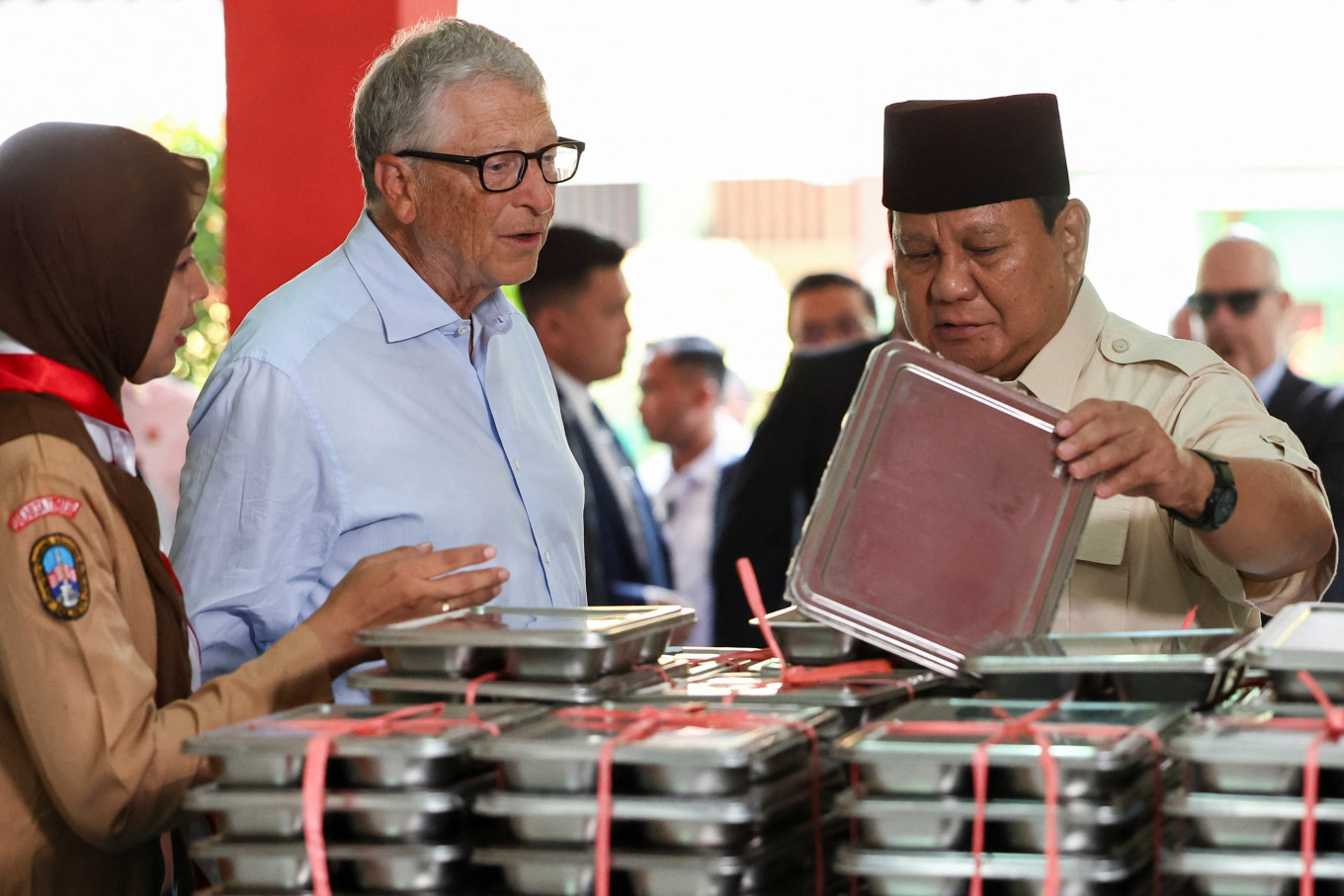Popular Reads
Top Results
Can't find what you're looking for?
View all search resultsPopular Reads
Top Results
Can't find what you're looking for?
View all search resultsQ1 GDP? Don’t look back!
The pessimistic scenario is that the first quarter was bad but that things will only get harder from now on, given the uncertainty ahead. The optimistic view is that, while global factors are largely out of our control, there are steps we can take at home to prepare our country.
Change text size
Gift Premium Articles
to Anyone
A
fter first quarter economic growth data came in nowhere near where the government needs it to be, officials pointed to the second quarter as the one to watch.
It is true that two exceptional factors may have dragged down GDP growth in the first three months of the year, leading to the disappointing rate of 4.87 percent.
First, the administration of Prabowo Subianto embarked on some serious belt-tightening at the beginning of the year, with massive budget cuts across ministries and other state institutions to free up funds for the President’s political priorities.
One of those is the free meals program to feed more than 80 million schoolchildren, toddlers, pregnant women and breastfeeding mothers across the nation, a key election promise of Prabowo’s.
Another is the newly created state asset fund Danantara, which combines the functions of a sovereign wealth fund with what might be referred to as a strategic investment vehicle built around the countries’ state-owned enterprises but also open to external funding.
Both of those priority programs require immense support from the budget, and while cuts to spending elsewhere should make that possible, much of the freed-up funds have yet to be deployed, because neither the food program nor Danantara have reached their full operational scale so far.
The economic impact of that policy realignment is that much pain was felt in the first quarter, for instance as the hospitality industry suffered under cutbacks to government events, while much of the gain will materialize only later.
Second, when we assess GDP growth, we generally compare economic output against the same period one year ago. The year-ago period in this case, the first quarter of 2024, saw exceptional state expenditure for the presidential election held in February of last year.
Government spending was a driving force for GDP growth in last year’s first quarter, and the absence of that spending this year makes the first quarter of 2025 look weak by comparison, which is known as a base effect.
So, while a drop below Indonesia’s typical 5 percent GDP growth rate is not good optics for the new administration, the government also has a point when it suggests people might want to wait for the second quarter, and the second half of the year, before making harsh judgements about the GDP outlook.
The problem is, however, that new challenges jeopardize growth in the remainder of the year, first and foremost the trade war between the United States and China, Indonesia’s two largest trading partners.
While the recent Geneva talks suggest that the two competitors, in a rivalry that extends beyond economic affairs, might strike a deal, a significant slowdown in trade and investment between the two is almost a given, and that would drag down global economic activity as well.
The pessimistic scenario is that the first quarter was bad but that things will only get harder from now on, given the uncertainty ahead. The optimistic view is that, while global factors are largely out of our control, there are steps we can take at home to prepare our country.
As we move ahead with the free meals program and Danantara, it goes without saying that both need to be well-governed with clearly defined targets and transparent execution to justify the funds poured into them.
Such a vast chunk of our national economy is now under Danantara that our country’s economic growth and long-term development will stand or fail depending on how well that one agency is run.
The fund’s proper management is also crucial for private sector activity. Only if investors are assured that government spending creates business opportunities for them will they commit to engaging, instead of remaining in that “wait-and-see stance” so often mentioned in recent months.
Of course, further deregulation would not hurt either, and the threat of exorbitant US import tariffs may just have created the necessary pressure to finally dispense with overly protectionist and often petty rules, like those on local content requirements.
So, while the first quarter was hardly what we wanted, let us just move on, shall we?










